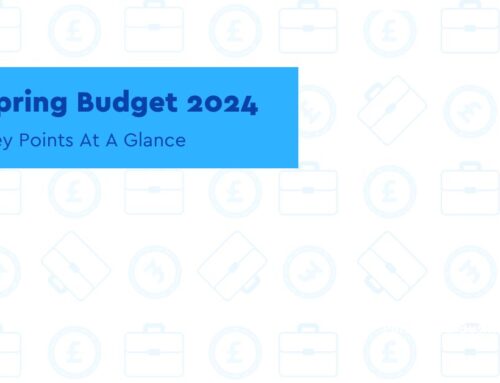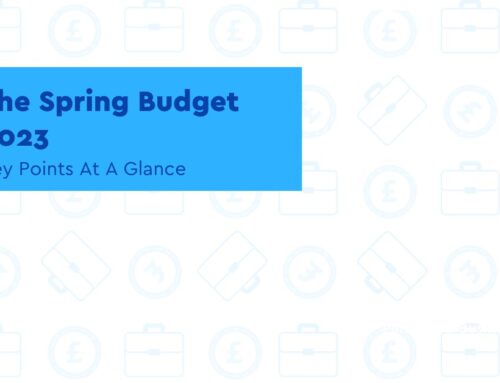News – Pensions
Brand new pension scheme launches in Great Britain
Key Points
- CDCs have the potential to provide improved retirement returns for savers
- Both employers and employees contribute to a collective fund from which individual retirement incomes are drawn
Collective Defined Contribution pension schemes, or CDCs for short, will offer an alternative to the UK’s two primary pension scheme models, Defined Contribution (DC) and Defined Benefit (DB).
CDCs have the potential to provide improved retirement returns for savers, with more predictable costs for employers. Both employers and employees contribute to a collective fund from which individual retirement incomes are drawn, with trustees responsible for oversight to ensure schemes are viable and can meet their legal requirements and commitments to members.
Minister for Pensions, Guy Opperman, said:
“CDC schemes have the potential to transform the UK pensions landscape.
“We have seen the positive effect of these schemes in other countries and it is abundantly clear that, when well designed and well run, they have the potential to provide a better retirement outcome for members, and can be resilient to market shocks.
“I have no doubt that millions of pension savers will benefit from CDCs in the years to come.”
The new schemes were made possible following the passage last year of the landmark Pension Schemes Act 2021.
Regulations currently provide for single or connected employer CDC schemes.
Some parties have already expressed an interest in expanding CDC models, including multi-employer CDC schemes, as well as the potential for CDC schemes which offer “decumulation only” – when pension savings are converted to retirement income.
Nigel Peaple, Director Policy & Advocacy, PLSA, said:
“The PLSA supports innovation within the pensions sector where it improves people’s retirements. CDC blends some of the desirable elements of Defined Benefit (DB), such as clearer target outcomes for the saver, and of Defined Contribution (DC) schemes, such as predictable contributions for the employer and member. By pooling longevity risk and the ability to invest money over a longer period, CDC has the potential to provide new and better approaches for benefit provision.
“There are, of course, challenges, including how to ensure savers understand the variability of benefits, and ensuring new models can deliver in practice once reserving and regulation is in place. Nevertheless, we are confident that this ambitious proposal will provide the incentive and momentum to overcome them.”
The DWP plans to consult later this year on a package of prospective design principles and approaches to accommodate new types of CDC schemes. This will bring the potential benefits to more savers in the UK, while also capitalising on the enthusiasm shown for innovation in this area.
This article was sourced from gov.uk: https://www.gov.uk/government/news/brand-new-pension-scheme-launches-in-great-britain
News – Finance
Changes that could affect your business’s money this summer
Key Points
- The National Insurance threshold has increased
- The Recovery Loan Scheme has been extended
- More businesses are able to save money with Help to Grow
There have been a number of recent money changes that could affect how small business owners manage their money.
And with the cost of living increasing, it’s important to stay on top of these updates to help you plan and budget effectively.
The National Insurance threshold has increased
When the government announced a National Insurance hike last year, the cost of living crisis hadn’t completely hit (although small businesses were already experiencing supply shortages and rising costs).
The 1.25 percentage point increase eventually happened in April 2022, amid high energy prices and a record jump in inflation.
The government subsequently decided to increase National Insurance thresholds to let people earn more before paying tax. Here are the changes for the self-employed:
- Class 4 ‘lower profits limit’ (the threshold at which you start paying) has been annualised at £11,908 (it was £9,880 from 6 April-5 July and is £12,570 from 6 July)
- Class 2 contributions are set at nil for people earning between £6,725 and £11,908
You pay National Insurance as part of your annual Self Assessment. Your return for 2022-23 will be due in January 2024.
For employers, make sure that you’re claiming the Employment Allowance, which reduces your Class 1 National Insurance liability by up to £5,000 (up from £4,000 last year).
When will inflation slow down?
The current inflation rate is 9.4 per cent. This has been driven by increasing fuel and food prices, as consumers struggle with the cost of living crisis.
Inflation means that it costs small businesses more to buy materials and stock. You may be faced with deciding whether to pass increases onto consumers.
When it comes to contractors and freelancers, you might be looking at ways to increase your rates, so you make enough to cover your business costs and day-to-day living.
The Bank of England has increased interest rates to 1.75 per cent to tackle inflation. It says it can’t predict “exactly how high” inflation will go, but it isn’t likely to hit the high levels that people experienced in the past.
These three steps may help small businesses:
Audit your prices. A fresh break even analysis could help you work out whether price increases can lead to better profit margins. But don’t take this decision lightly, as customers and clients may be used to current prices.
Audit your costs. Similarly, take a new look at your expenses to see if you can reduce them. Can you cut any inefficiencies? Lean manufacturing principles may help you find ‘waste’ in your current processes.
Come up with new plans and forecasts. Your plans may need to adapt to a changing world. Take a look at your business plan to see whether there’s anything that needs updating. You can also create a new cash flow forecast and update your budget.
Got old paper banknotes? Spend them now
If you have any old £20 and £50 paper banknotes at home or still circulating in your business, you should think about spending them.
They won’t be legal tender after 30 September, so if you don’t use them, you’ll have to exchange them with the Bank of England.
In June, the Bank of England said that £8.2 billion in old £50 notes and £6.3 billion in £20 notes were still in circulation.
The Recovery Loan Scheme has been extended
Following suggestions that a permanent Recovery Loan Scheme replacement might be needed, the government announced in July that they are extending it by two years.
The details are:
- up to £2 million is available for each business
- the minimum funding is £1,000 for asset and invoice finance and £25,001 for term loans and overdrafts
- the total amount offered is up to the lender, who will do credit and fraud checks
- the annual interest rate, upfront and other fees can’t be more than 14.99 per cent
The government guarantees 70 per cent of the finance to the lender.
But the borrower is 100 per cent liable and lenders may now ask for a personal guarantee, meaning you could lose your home if you don’t repay.
Banks warned over small business repayments
With the cost of living hitting small businesses hard, the FCA has told banks that they should treat small business customers fairly when it comes to recovering debt.
The FCA looked at the collection practices of 11 banks. They detail these main problems:
- banks agreeing unsustainable payment plans with customers (essentially establishing repayments that customers can’t afford based on what they’ve told the bank)
- staff not being trained to support customers effectively and make fair decisions
- a lack of clear policies that identify and support vulnerable customers
- a lack of quality assurance and testing for processes, meaning it’s more difficult to be fair to customers and easier for problems to be undetected
The FCA has given feedback to individual banks, but it wants to see action from the sector as a whole.
More businesses are able to save money with Help to Grow
If you have one employee (who isn’t an owner), you could save up to £5,000 on the cost of new software through Help to Grow: Digital.
The government expanded the scheme’s eligibility after complaints that it didn’t reach enough businesses (you previously had to have five employees).
You can get a discount on software including customer relationship management and ecommerce.
This article was sourced from Simply Business: https://www.simplybusiness.co.uk/knowledge/articles/2022/07/8-summer-money-updates-for-small-business/
News – Bank of England
Bank of England will probably need to raise rates again, says deputy governor
Key Points
- The spread of inflation was showing up in rising British pay and companies’ pricing plans
- The Bank raised borrowing costs last week by the most since 1995
The Bank of England will probably have to raise interest rates further from their current 14 year-high to tackle inflationary pressures that are gaining a foothold in Britain’s economy, its deputy governor, Dave Ramsden, has said.
The spread of inflation was showing up in rising British pay and companies’ pricing plans, having originally been triggered by the reopening of the world economy from Covid-19 lockdowns and then by Russia’s invasion of Ukraine, Ramsden said.
Inflation is expected to return to the Bank’s 2% target – down from above 9% now and a projected peak of 13% in October – as the economy goes into a recession and borrowing costs rise.
“Personally, I do think it’s more likely than not that we will have to raise the Bank rate further. But I haven’t reached a firm decision on that,” he said.
“I’m going to look at the indicators, look at the evidence as we approach each upcoming meeting.”
The Bank raised borrowing costs last week by the most since 1995 as it took the Bank rate to 1.75% from 1.25%, its sixth increase since December, compounding the biggest two-year disposable income hit for households since at least the 1960s.
“We know that what we’re doing is adding to an already very challenging environment,” Ramsden said. “But our assessment is we needed to act forcefully to ensure that inflation doesn’t become embedded.“
Ramsden, a former senior official at Britain’s finance ministry who joined the Bank of England in 2017, said a fall in inflation expectations in financial markets was encouraging, as were signs that households and companies thought central bankers would get to grips with the problem.
Asked if the Bank rate was close to hitting a peak, Ramsden said that over the past year the Bank had to deal with the end of Covid-19 restrictions that hammered Britain’s economy and the Russia-Ukraine war that pushed inflation to a 40 year-high.
“We’re in extraordinary period where a lot is changing. So I wouldn’t want to make any predictions about where the Bank rate is going to end up,” Ramsden said.
“I guess one thing I would say is I think inflation expectations remain anchored and that’s really important.“
As well as raising interest rates, the Bank plans to move Britain’s economy off its massive stimulus programmes by starting to sell government bonds – a process known as quantitative tightening (QT) – as soon as next month.
Asked whether the Bank would continue to sell bonds if it needed to go in the opposite direction and cut interest rates to support the economy – something investors expect to happen next year – Ramsden said that was a possible scenario.
“I’m certainly not ruling out a situation where when we look at the risk to the economy, having been raising the Bank rate, at some point we then have to start lowering it quite quickly,” he said. “I can imagine situations, yes, where we’ll carry on … with a pace of QT in the background.“
Ramsden also pushed back at criticism of the Bank’s inflation-fighting record by Liz Truss, the frontrunner to become Britain’s next prime minister, and her supporters some of whom have suggested the Bank should have less independence.
Ramsden said British inflation had averaged 2% – the Bank’s target – over the 25 years after the central bank was granted operational independence in 1997.
This article was sourced from BM Magazine: https://bmmagazine.co.uk/news/bank-of-england-will-probably-need-to-raise-rates-again-says-deputy-governor/
News – Employer
First Full Payment Submission for new starters
Key Points
- Using the employee’s P45 information will help to record previous pay, tax and student loan
- Employers can also assign payroll IDs to your employees – the ID must be unique
When completing the first Full Payment Submission for new starters it is important that you obtain and enter your employee’s correct address and postcode and use the employee’s P45 information to record their previous pay, tax and student loan (if applicable).
If the employee does not have a P45 you can use the following starter checklist for PAYE.
If you use the starter checklist to add the employee onto your payroll records and you receive the P45 after you have received a tax code from HMRC, you do not need to update the previous pay, tax, or tax code on your payroll software, only update student loan details (if applicable).
Using the correct postcode and address is important because HMRC uses the postcode to verify the employee’s address. If you enter an incorrect address or postcode this could result in the employee’s address being changed on their systems leading to correspondence being issued to the wrong address.
An incorrect address held on HMRC’s systems may also affect the Department for Work and Pensions ability to process Universal Credit claims and issue correspondence to claimants.
For further information visit Tell HMRC about new employee.
Giving your employee a payroll ID
You can assign payroll IDs to your employees. The ID must be unique – so use a different one if:
- You re-employ someone – if you do this within the same tax year restart their year-to-date information from ‘£0.00’
- An employee has more than one job in the same PAYE scheme
If you re-use a previous payroll ID, you’ll create a duplicate record and report payroll incorrectly.
This article was sourced from gov.uk Employer Bulletin August 2022
Latest interest rate change increases tax repayment rate
Following the Monetary Policy Committee decision to increase the Bank of England base rate to 1.75%, HMRC has announced increases to both interest charged on late paid tax and the rate paid on repayments of tax.
As HMRC interest rates are linked to the Bank of England base rate, its August 4 increase from 1.25% to 1.75% has triggered another increase in rates for late payments.
HMRC has announced that the rate will increase with effect from August 15, 2022 for late quarterly instalment payments, and that late payment interest for other late payments will increase from August 23, 2022.
The rate of interest on unpaid instalments of corporation tax liabilities is calculated as base rate plus one. It will increase to 2.75% from August 15, 2022.
The rate of interest for the late payment of other taxes is calculated as base rate plus 2.5, so will increase to 4.25% from August 23, 2022.
The rate of interest paid by HMRC on the overpayment of tax will also increase to 0.75% on August 23, 2022 – the first change since September 29, 2009. The repayment rate is calculated as the higher of:
- 0.5%; and
- base rate minus one
Fifth of employers failing to take advantage of salary sacrifice savings
A fifth of employers could be incurring unnecessary tax bills by failing to take advantage of initiatives such as salary exchange.
Changes using salary exchange could save an employee national insurance (NI) charge of up to 13.25 per cent on their pension contribution while at the same time, saving the employer 15.05 per cent.
In light of this, it estimated that an employee with a pensionable salary of £40,000, paying an employee contribution of six per cent into their pension scheme would save £318 per year and the employer would save £361 per year.
For a company of 1,000 employees, this would represent a saving of over £360,000 per year for the employer.
Calls for employers to take advantage of salary sacrifice schemes have been compounded amid the cost-of-living crisis, with recent research revealing that savers could collectively be missing out on up to £1.9bn a year.
Get In Touch
At Morgan Reach, we understand every business needs a little help now and again-especially when it comes to the financial side of things. Therefore, to help our clients and visitors we endeavour to cover as much of the business news as possible. If you are self-employed or run a business and need assistance and advice on how these news could make a difference to you or your business, feel free to get in touch with the experts at Morgan Reach. Our business growth experts at Morgan Reach will guide you through what support is available for you or your business as well as the latest news that may affect you.







